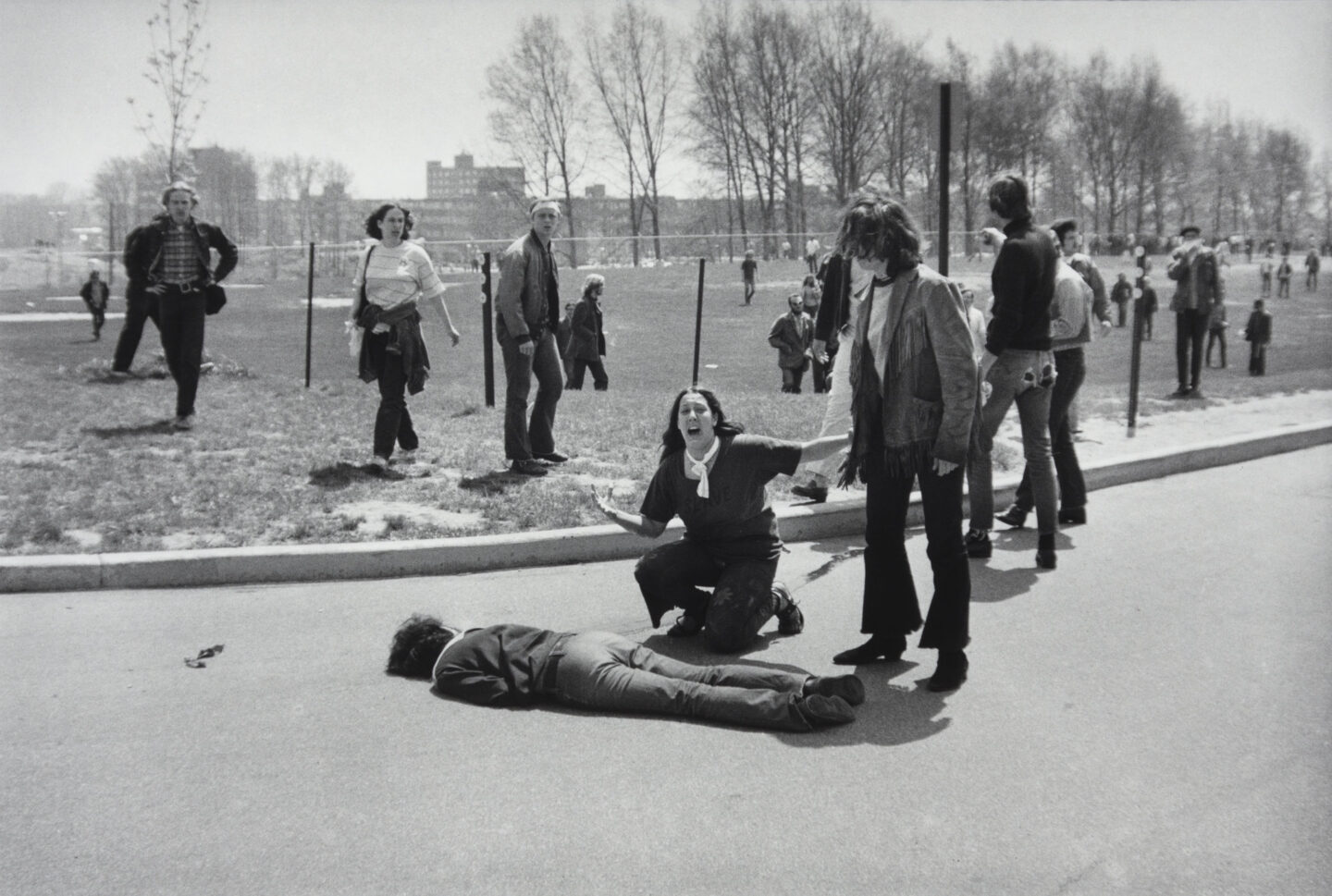50 years ago today was an incredibly important day in my life. I was a 20-year-old sophomore at Carolina about to enter exam week. Amid campus protests all over the country, on May 4, 1970 four college students at Kent State University in Ohio were shot and killed by National Guardsmen. Some students were protesting the expansion of the Vietnam War into Cambodia by President Nixon just days earlier and some students shot were simply walking to class. They were college students just like me, and American soldiers were killing them on a college campus in America.
I vividly remember walking out of my Economics class and joining a rally at Polk Place on Carolina’s campus. After speeches we took over Franklin Street about 6000 strong to protest those killings in Ohio. Businesses on Franklin responded quickly boarding up their stores and the University responded quickly as well cancelling exams and closing campus.
So within days Chapel Hill was empty of students. Many, as I wish I had done, went to DC to join the massive protests there. I went home to Hickory and sometime that week went to my regular barber shop for a long overdue haircut. While I waited my turn in the chair I heard the conversation turn to the shootings and heard the conclusion that the students had gotten just what they deserved for protesting the Vietnam War. I got up and walked out and have only been in a barber shop twice since 1970. That students could be killed for protesting and have that action approved by citizens in my hometown was profoundly disturbing to me.
Fortunately, that in June of that year I had been hired to be a counselor at Lutheridge, a Lutheran camp and conference center in the mountains of North Carolina. To be welcomed into that wonderful community, to be accepted and loved for who I was, was profoundly rewarding and couldn’t have come at a better time. When you’re working at Lutheridge in the summer, you are so busy that the world seems to just disappear while your life is consumed by the tiny community that you are a part of at camp. But in the late 60s and early 70s the draft found its way into conversations and lives of the male counselors. Our friends were dying in Vietnam, and on college campuses.
During Music Week in the summer of 1970, Lutheridge had invited George Britton, a guitar playing folksinger, songwriter to be part of the Music Week staff. He had written a worship service and in the Chapel at Lutheridge on Thursday night, he led us in worship. His sermon included a song that he had written to honor the students at Kent State. It is a dark song for a dark time in our history.
Here are the lyrics:
One for the cause of freedom, two had to take a stand Three for tomorrow’s children, four for the love of man.
Students at old Ohio, rose with a mighty shout,
Stood as the gas spread round them, fell as the shots rang out.
Bright young blood on the grass there, brave young life on the ground,
Darkness of death on their foreheads, guards and police around.
Where oh God their tomorrow, their hope for a better day?What of their trust in the parents to guide them and show the way?
Four more martyrs to cherish, four more loves to be missed.
Four more names to be added to the sad but ended list.
Why must we kill our children, why must they die for our sin?
Why must their blood buy our freedom, what price the victories we win?
Toll the bell for tomorrow, for a dark and dying clan.The death of our fairest children is death to races of man.
Just at the end of the song, a baby in the Chapel started to cry. I was sitting with fellow counselor Tom Skordal. We were filled with sadness, anger, rage – a thousand emotions. We made our way back to the water tower behind the Chapel to try and compose ourselves before rejoining our campers. Anger overcame composure for some time, and fortunately our campers found their way back to their cabins. We were not with them. My anger at LBJ and Nixon has never abated my entire life. Vietnam was a tragedy of our own making and we have paid a extraordinarily high price for it.
I am so thankful that for that very painful summer, I was surrounded by love at Lutheridge. It uplifted me and sustained me in a very dark time. That’s what Lutheridge, and other good communities do. That summer I learned more about love than about hate and anger. I am forever grateful to my Lutheridge community for helping me learn that lesson.
